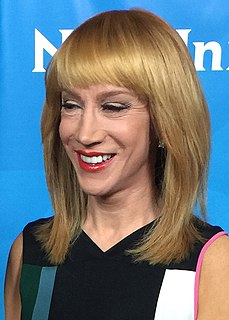A Quote by Hunter S. Thompson
I was kind of relieved with the way the book [The Proud Highway] came out. It's beyond an autobiography or a biography. I never knew what was going to come up next.
Related Quotes
I have always hated biography, and more especially, autobiography. If biography, the writer invariably finds it necessary to plaster the subject with praises, flattery and adulation and to invest him with all the Christian graces. If autobiography, the same plan is followed, but the writer apologizes for it.
If you knew what was going to happen, if you knew everything that was going to happen next—if you knew in advance the consequences of your own actions—you'd be doomed. You'd be ruined as God. You'd be a stone. You'd never eat or drink or laugh or get out of bed in the morning. You'd never love anyone, ever again. You'd never dare to.
What shop did this book come from? she asked. Her father was looking worried at the cooker. He always got rice wrong. I don't know, Brooksie, he said, I don't remember. That was unimaginable, not remembering where a book has come from! and where it was bought from! That was part of the whole history, the whole point, of any book that you owned! And when you picked it up later in the house at home, you knew, you just knew by looking and having it in your hand, where it came from and where you got it and when and why you'd decided to buy it.
I used to drive up and down Pacific Coast Highway in this black Porsche, and I had seen a couple of accidents on the highway involving Porsches. I realized if you're in any kind of head on accident in one of those cars, they're going to get you out of it with a can opener, one of those Jaws of Life.
I always knew from the beginning that this was the only way to write Then We Came To The End - that it had to be in first - person plural if it was going to illustrate how the individual becomes part of the collective. I had no interest in writing the book in a more conventional voice. It goes back to that fascination I had with telling a story in multiple ways. It was the only choice I gave myself, really - I said "This is it, pal. If you can't tell a story this way, you're going to have to abandon the book. Write it this way or give up."
I get letters from two kinds of readers. History buffs, who love to read history and biography for fun, and then kids who want to be writers but who rarely come out and say so in their letters. You can tell by the questions they ask - How did you get your ?rst book published? How long do you spend on a book? So I guess those are the readers that I'm writing for - kids who enjoy that kind of book, because they're interested in history, in other people's lives, in what has happened in the world. I believe that they're the ones who are going to be the movers and shakers.































